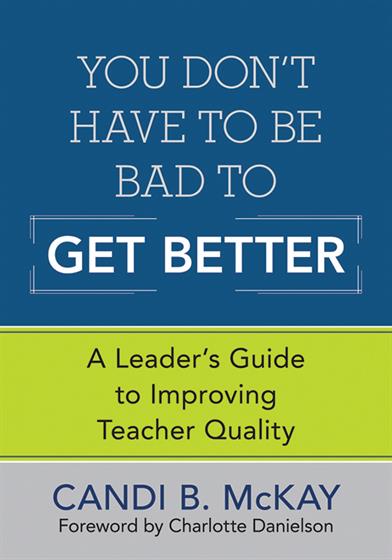Acknowledgments
About the Author
Foreword
Preface
A Laser Like Focus
Organization and Structure
Practical and Useful Features
Audience
1. Removing the Rose Colored Glasses
The Rose Colored Glasses Phenomenon
Red Flag Warnings
Demonstrating Moral Courage
Leading Change: Necessary Dispositions
Perceptions about the Role of a School Leader
Confidence in Self as an Instructional Leader
A Growth Mindset
Moral Courage
Key Points about Removing the Rose Colored Glasses
Putting Words into Action
Reflecting on Your Current State
Action Tools
2. No More Lake Wobegon: Creating a Culture of Learning
The Effects of Well-Intended Fiction: “A Culture of Nice”
The Changing Landscape
The Leader’s Role: Essential Beliefs and Understandings
Changing Beliefs: Practice Comes First!
Drinking the Water
Understanding About Learning
A Presumption of Continuous Growth for All
Setting the Stage: Defining Who We Are
Capturing the School’s History
Developing Core Beliefs and Commitments
Developing Trust and Rapport
Step Aside and Lead: Creating Opportunities for Learning
Key Points about Creating a Culture of Learning
Putting Words into Action
Reflecting on Your Current State
Action Tools
3. The Wisdom of Instructional Leadership: What Leaders Need to Know and Do
Knowledge of Staff
Understandings about Teaching and Learning
What Is Good Teaching?
How Good is Good Enough?
How Does Learning Occur?
What is Engagement in Learning?
Skills of the Instructional Leader
Collecting Evidence to Assess Teaching
Engaging in Professional Conversations
Skillful Questioning
Productive Listening
Providing Feedback
Facilitating Professional Goal Setting
Key Points about What Leaders Need to Know
Putting Words into Action
Reflecting on Your Current State
Action Tools
4. The Wisdom of Instructional Practice: What Teachers Need to Know
Playing a Guessing Game
Guessing Games Replaced by Transparency
Understandings about Teaching and Learning
Putting Your Know-How into Action: A Cycle of Continuous Improvement and Growth
Don’t Forget to Feed the Teachers!
A Plan for Teacher Learning
Key Points About What Teachers Need to Know
Putting Words into Action
Reflecting on Your Current State
Action Tool
5. Promoting Teacher Learning: It’s All Talk!
Powerful Conversations
Setting the Stage
Acknowledging the Leader’s Dual Role
Making Intentions Clear
Factors that Impact Conversations
Rapport and Relationship with the Teacher
The Developmental Level of the Teacher
The School Culture
The Data Collected about Teaching and Learning
The Teacher’s Mindset
The Skills of the Leader Facilitating the Conversation
Leading Conversations: When, What and How
When to Talk
What to Talk About
How to Talk
Key Points about Promoting Teacher Learning
Putting Words into Action
Reflect on Your Current State
Action Tool
6. Principals Can’t Lead Alone: The Role of the District Office
Improving Instruction: Does the Central Office Matter?
A Case in Point
Increased Accountability for Leaders
Creating a Culture for Professional Learning: A Case Study
A Powerful First Impression
A History of Principal Autonomy
Getting the Right Members on the Team
Learning for All Adults in the System
Aligning School and District Goals and Priorities
Teacher Evaluation a Tool for Teacher Learning
Professional Development as the Fuel for the System
Expanding Professional Learning Across the District
Finding Time for Professional Learning
Securing the Future of Leaders and the Professional Staff
Key Points about the Role of the District Office
Putting Words in Action
Action Tool
Reflect and Assess
References
Index



